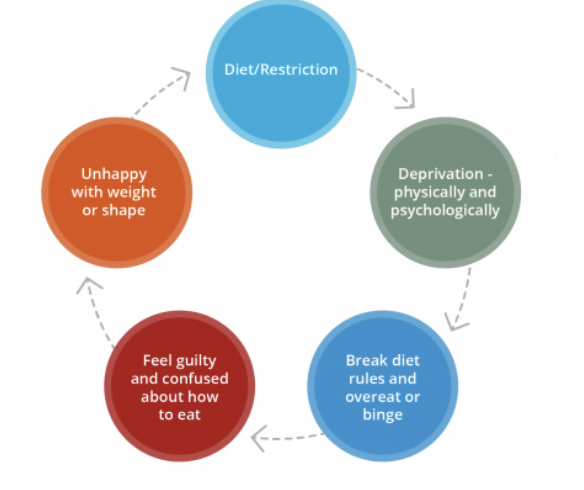This article is the first in a four-part series exploring the impacts of eating disorders. Part 1 discusses the mental and emotional effects, Part 2 provides an in-depth look at the specifics of eating disorders, Part 3 examines their impact on the CI community, and Part 4 highlights current solutions and available support options.
“It’s like being in an abusive relationship, where one minute it’s spewing hateful thoughts about you and the next it’s apologetically promising that if you listen to what it says, you will achieve happiness.”
The comment above was given by Bethany R. during her interview with the National Eating Disorder Association (NEDA) in response to the question: What does it truly feel like to suffer from an eating disorder? Eating disorders can manifest in various forms, including Anorexia Nervosa, Bulimia Nervosa, and Binge Eating Disorder — all of which mark profound dysfunctions in one’s eating behaviors and impact multiple aspects of life. Considerable short-term and long-term physical symptoms (such as emaciation, anemia, or low blood pressure) affect individuals facing such abusive relationships with food. These repercussions extend further to mental well-being, as well as academic and social performance.

Diet white plate with centimeter, cherry, fork. Unsplash, 4 October 2022
The relation between eating behaviors and mental health has often been characterized as “bi-directional.” Variations in one’s psychological state can influence eating habits, and vice versa; the size or type of one’s meal can impact mental well-being. Along with disturbances such as depression and anxiety, negative emotions can generally trigger overeating as a coping mechanism. When emotionally distressed, many tend to turn to high-fat and high-sugar “comfort” foods, such as chocolate or mashed potatoes — while cases of severe depression may drastically reduce calorie intake. (Polivy and Herman 1) Research has shown that nearly 97% of individuals with anorexia nervosa have suffered from “at least one co-occurring psychiatric disorder” (Victory Bay). Certain tendencies in personality, such as perfectionism or impulsivity, may also predispose individuals to eating disorders.
Conversely, unhealthy eating patterns can worsen existing mental health issues or instigate new ones. Eating disorders notably contribute to poor self-esteem and body image, leading to feelings of inadequacy and pessimism. Processed or high-sugar foods, by elevating dopamine levels, may induce inflammation in the body and brain, potentially causing anxiety and depression. (Sutter Health) Thus, the relationship can also be defined as cyclical, with each influencing and exacerbating the other. This nature perpetuates mental health issues, with the “vicious cycle” typically involving: a) a desire to exert control over negative feelings, b) the use of restriction or overconsumption to suppress emotions, c) re-emergence of negative feelings, and d) self-hatred or renewed desire to control (A Place of Hope). The chart below, provided by the National Eating Disorders Collaboration, showcases a general “diet cycle” which allows the perpetuation of various eating disorders.

Diet Cycle for Eating Disorders. NEDC
Understanding the multifaceted impacts of this abusive relationship with food is crucial for developing effective interventions. To tackle the problem, one must first understand it — together, we can work towards providing those affected with the care they deserve.
If you are a member of the CI community struggling with a similar issue, contact Ms. Connor ([email protected]) or Ms. Patterson ([email protected]) to seek help.












